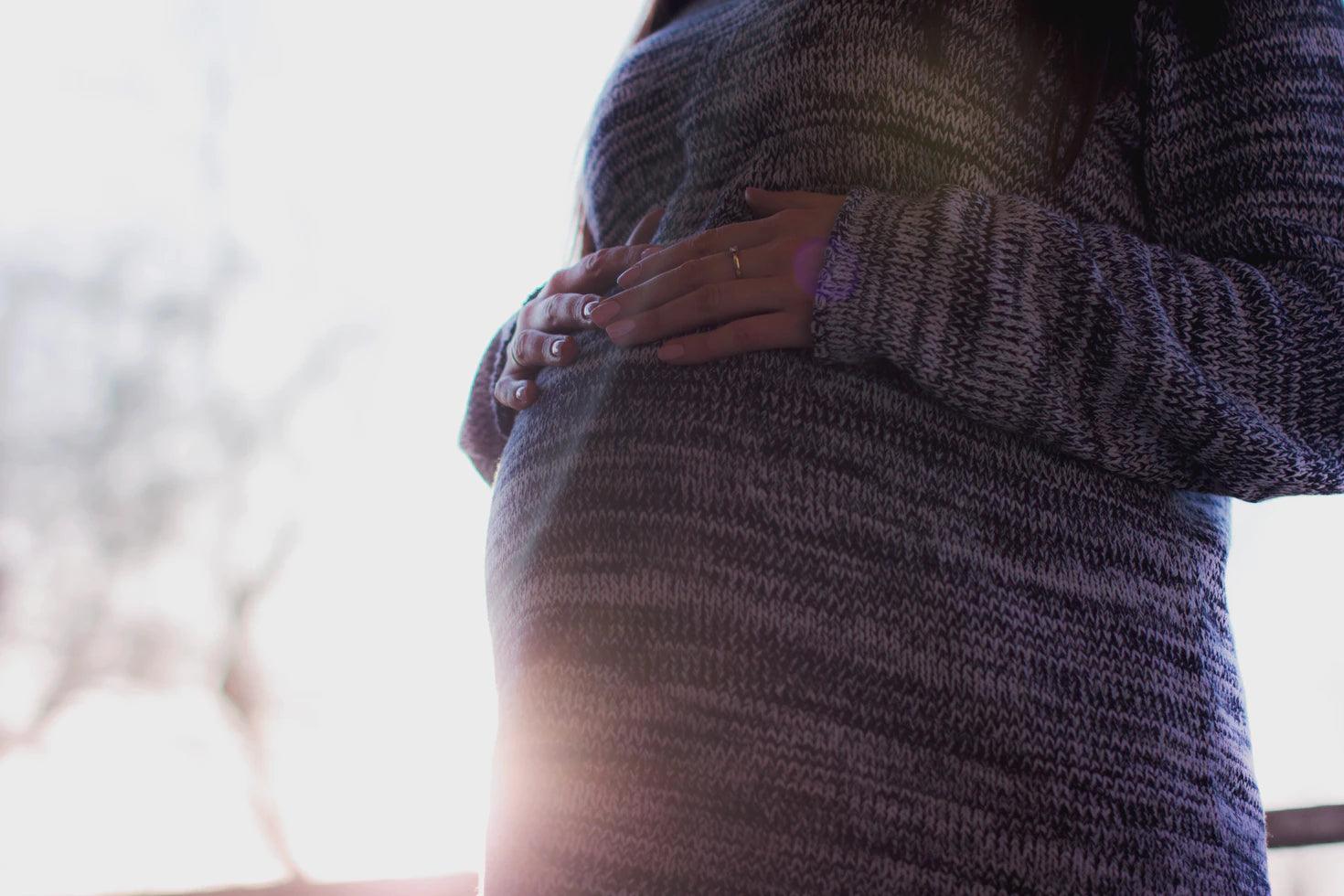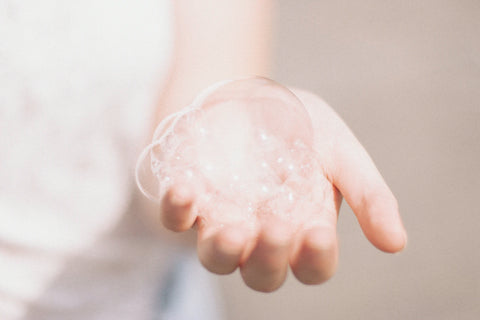5 Common Itches During Pregnancy
•Posted on August 25 2022

Everyone has had the feeling of itchy skin. It is a particularly unpleasant experience that makes you restless and sleepless at night, and even if you scratch it with your hands, the itchiness only increases.
The itchiness that occurs during pregnancy is even more irritating. There are many causes of itching during pregnancy, and there are different countermeasures for different causes. Moreover, there is one type of itching that, if left unattended, may even lead to the death of the fetus.
Why does itching during pregnancy occur? What can we do to deal with it? We have introduced 5 causes of itching during pregnancy and countermeasures to relieve it. We hope it will be helpful to you.
Table of Content:
- This is a common occurrence
- Intrahepatic cholestasis of pregnancy (ICP): important
- Pruritic urticarial papules and plaques of pregnancy (PUPPP)
- Allergy
- Excessive belly stretching and stretch marks
- Dry skin
- Summary
This is a common occurrence
In fact, itching of the skin during pregnancy is common. From pregnancy until about a month after delivery, 30% of women experience itching or other types of skin disorders. Especially after the sixth month of pregnancy, some women often feel a burst of unbearable itching in their abdomen. And during this period of pregnancy, many women are afraid to use medication to fight the itching in order to ensure the safety of their baby.

Intrahepatic cholestasis of pregnancy (ICP): important
A small percentage of itchy skin is caused by ICP (intrahepatic cholestasis) type disorders during pregnancy. Intrahepatic cholestasis during pregnancy is a serious disease that can lead to fetal death. It causes impaired blood circulation between the mother and the fetus, which affects the exchange of substances and gases between the mother and the fetus, leaving the fetus in a state of hypoxia, slowing growth and even causing fetal death.
The "itching" caused by this disease is distinctly different from normal itching:
| General itching | ICP |
| Localized itching | Beginning with the abdomen and progressing to the whole body |
| Short duration, may disappear in a few minutes | Persistent pruritus |
| The more itchy the skin, the drier it is | Smooth skin, only scratching will appear a scratch mark |
| More itching during the day | The sensation is more intense at night and is accompanied by the symptom of yellow chancre. |
If a pregnant woman finds that her condition is consistent with the above symptoms, she should not only stop itching, but also improve her liver function and strengthen fetal monitoring, otherwise it may cause intrauterine hypoxia or even death of the fetus.
Countermeasures:
1. Seek prompt medical attention. Report to the obstetrician to check jaundice, liver and kidney function, blood count, bile acids and other indicators.
2. Follow the doctor's instructions. If unfortunately diagnosed, the doctor will decide the treatment plan according to the degree of the condition combined with the gestational week, the baby's development, and the presence of intrauterine hypoxia. All we have to do is to relax and follow the doctor's instructions.
Pruritic urticarial papules and plaques of pregnancy (PUPPP)
This is an intensely pruritic skin condition that often occurs in late pregnancy. It is typically characterized by red pruritic bumps distributed over the abdomen. The exact shape varies from person to person and may be a number of small red bumps or red patches. It appears initially on the abdomen, usually around the belly button, and slowly spreads to the thighs.
This may be related to progesterone, excessive expansion of the abdomen (rapid weight gain of the baby or multiple pregnancies) triggering changes in the skin. Because it is a condition specific to pregnancy, the itching usually resolves naturally a few weeks after delivery and does not affect the health of the mother or baby.
Countermeasures:
Seek medical attention promptly and follow the doctor's instructions.
Allergy
During pregnancy, affected by the changes of progesterone in the body, some pregnant women's skin will become more sensitive and fragile, and more prone to skin allergies. And there are many factors that trigger allergies, such as medications, food, environment, etc. Allergic reactions can occur whenever you are accidentally exposed to allergens.
Allergies during pregnancy can be mild or severe. If the allergy only appears locally on the body and disappears in a short time, and is not accompanied by other symptoms, we do not need to worry. Just take good physical care and stay away from allergens.
However, if the mother has allergic reactions all over her body, accompanied by physical discomfort and poor mental state, she must go to the hospital in time, because allergies can be severe enough to cause suffocation.
Countermeasures:
1. Stay away from allergens. Allergic mothers should stay away from substances that can easily trigger allergies, such as pollen, willow, etc., and be careful with cosmetics.
2. Pay attention to sun protection. The skin layer of sensitive skin is thin and has no defense against ultraviolet rays, so allergic mothers must do a good job of sun protection.
3. Choose cotton maternity clothes to reduce the stimulation of the skin.
4. If the situation is particularly serious, you must go to the hospital in time to seek medical treatment under the advice of the doctor.

Excessive belly stretching and stretch marks
Most itching during pregnancy is caused by excessive belly stretching and stretch marks. If it happens to be just the stretch marks that appear to itch, then this is most likely the case.
The human abdomen from the outside to the inside has: skin, skin elastic fibers, subcutaneous fat layer, rectus abdominis muscle composed of muscle fiber groups and tendons, preperitoneal fat layer and peritoneum. When the pregnant woman's belly gets bigger and bigger, the skin elastic fibers will break and the rectus abdominis tendons will be separated to varying degrees. At this point, itching symptoms may occur.
Countermeasures:
1. Balanced diet. Pregnant women can eat more protein-rich foods and vegetables to increase the elasticity of the skin.
2. moderate use of belly band (remember to take it off at night), to relieve the skin over-stretching.
3. exercise, adhere to moderate exercise, such as walking, pregnancy yoga, increase skin elasticity.
Dry skin
Due to increased sweating during pregnancy, some women may increase the number of baths, and frequent use of bath products may lead to dry skin, which may cause itchy skin. In addition, insufficient intake of vitamins, trace elements and protein may also cause dry skin during pregnancy.
How can we tell if the itching is caused by too much dryness? Observe the skin surface, if there are flakes it means your skin is dry.
Countermeasures:
1. When bathing, the water temperature should not be too high (try to control at 35°-38°), use mild and unscented soap, rinse well after washing the foam, and wipe the body thoroughly.
2. Try to apply wet and cold compresses to the itchy skin.
3. Try to wear loose cotton clothing, avoid chemical fiber and tight clothing.
4. Eat a reasonable diet and eat more light foods.

Summary
If a pregnant woman has unexplained itching and does not know which of the above conditions it is, for the safety of the baby and the mother, it is better not to scratch and not to tolerate it, but first go to the obstetrics department of a regular hospital to check for bile acids and rule out the possibility of cholestasis, then go to the dermatology department to register and consult the doctor. In terms of medication, topical drugs are the mainstay, and if they are not effective, you can take oral medication to stop the itching under the guidance of your doctor.
Comments
0 Comments
Leave a Comment